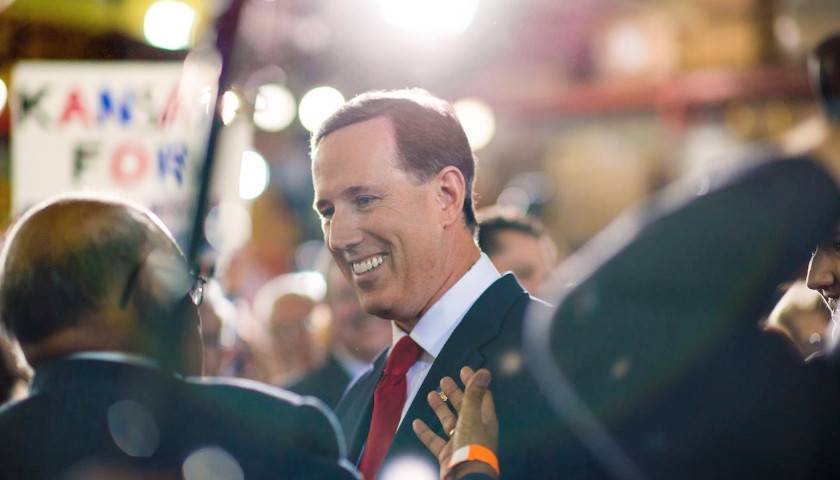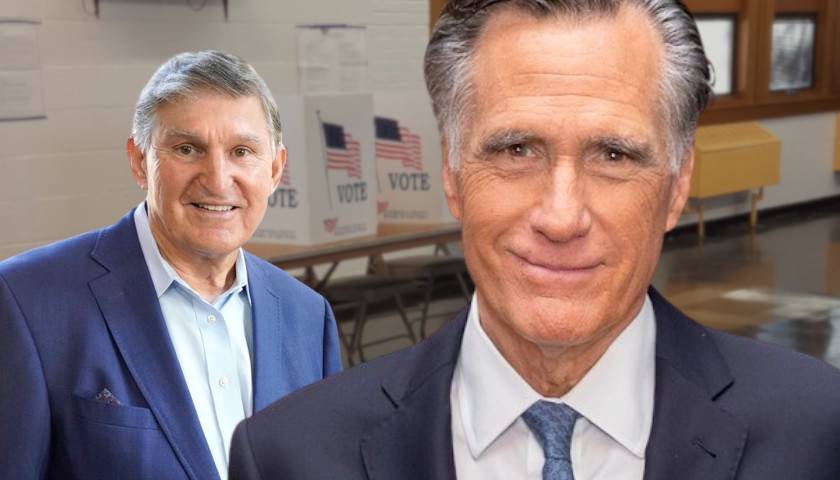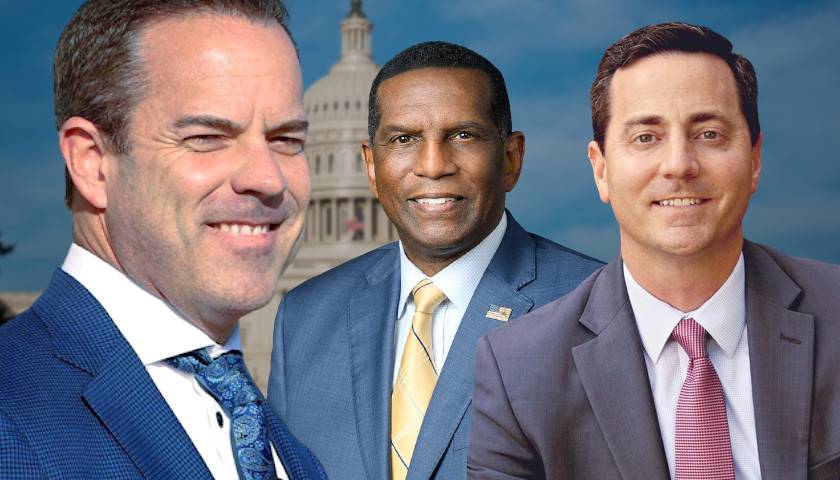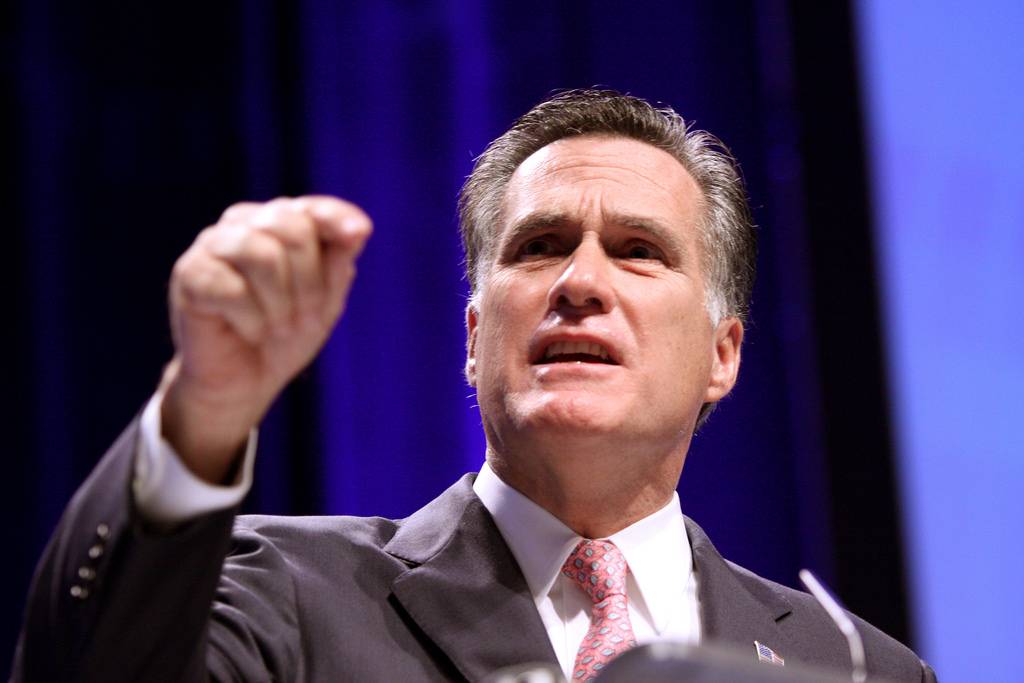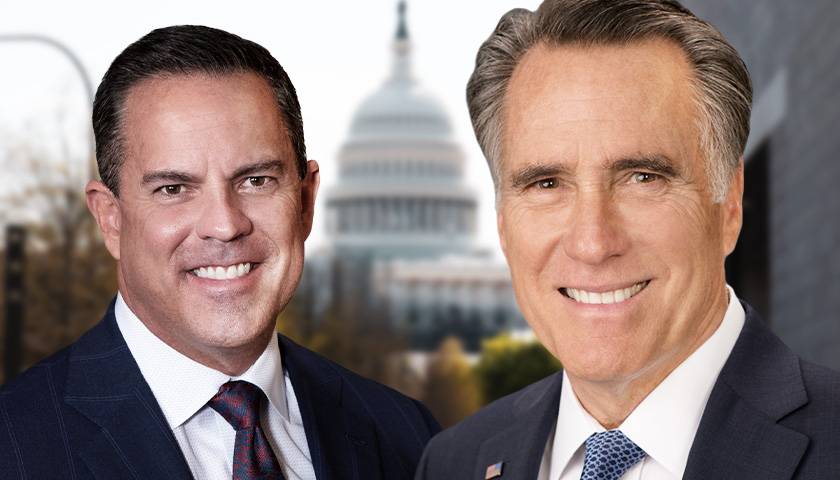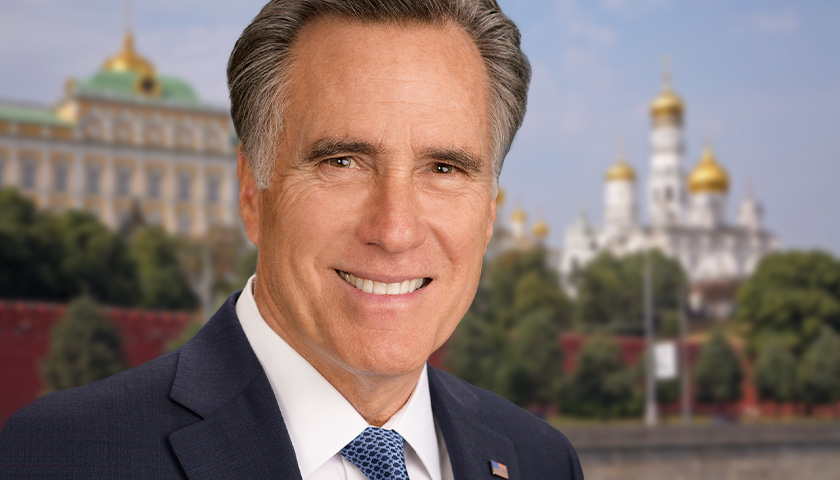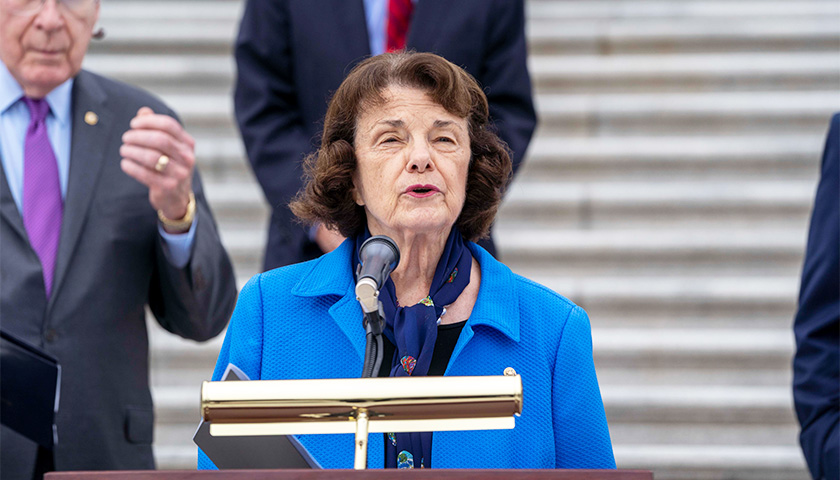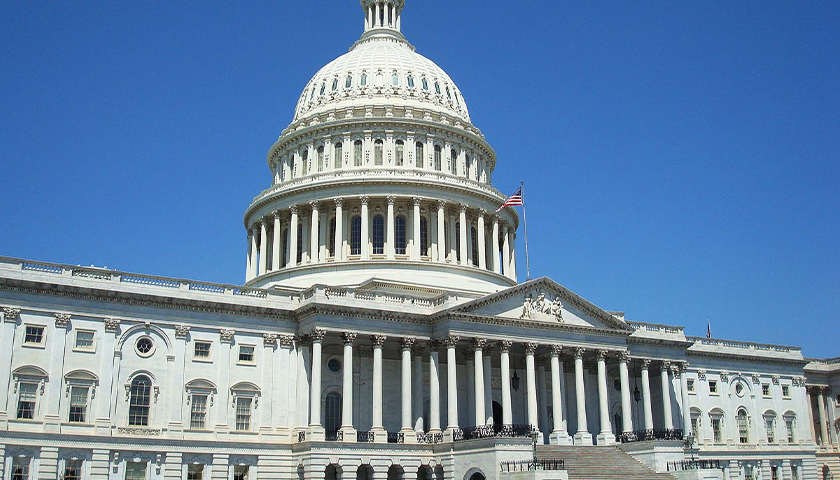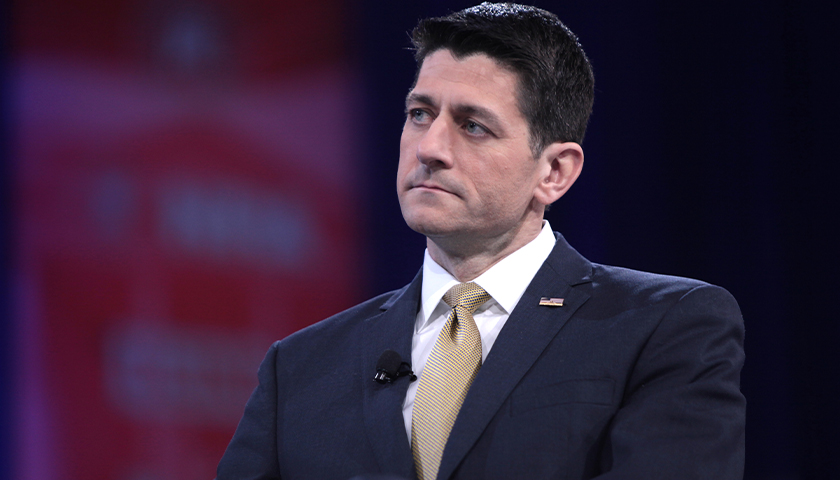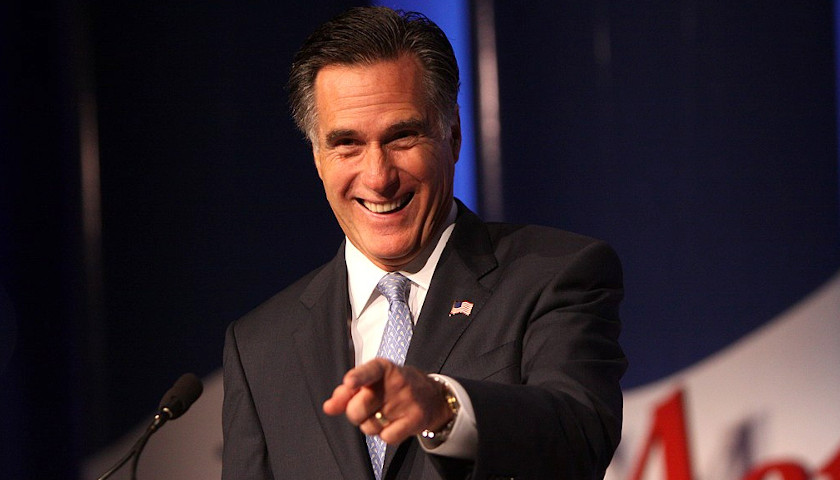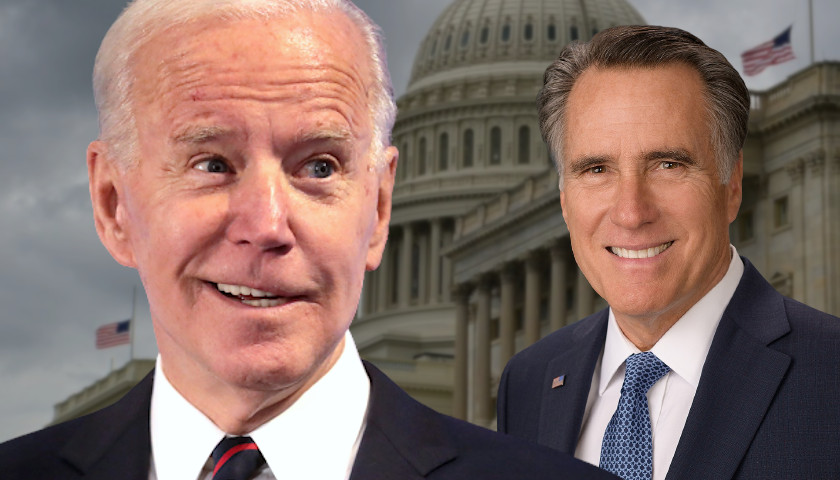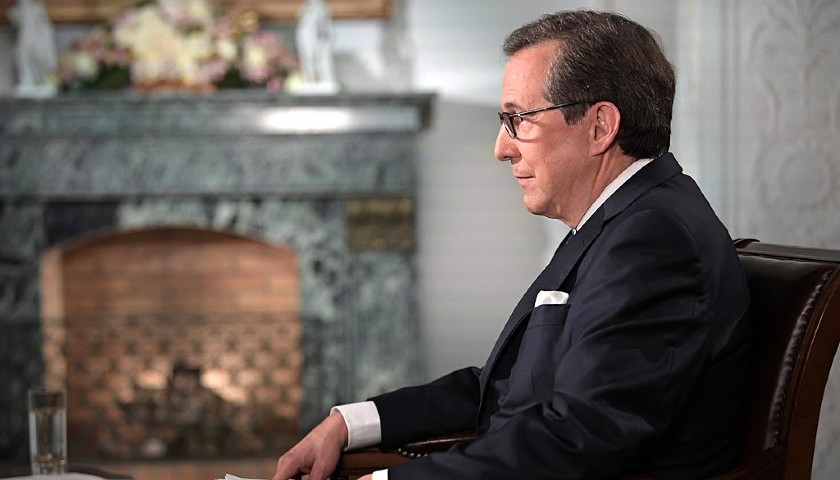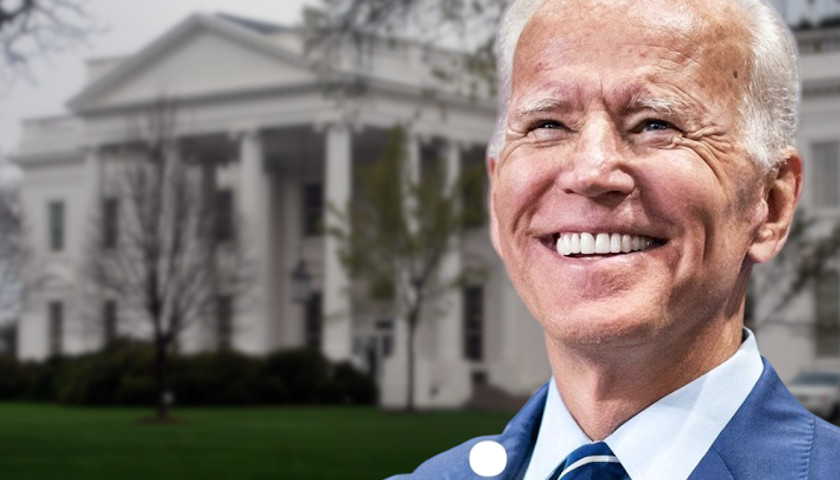Republican strategist Scott Jennings said Wednesday night that he’s “heard” comparisons of prominent Republicans to German dictator Adolf Hitler going back to the George W. Bush administration during a panel on CNN.
Read MoreTag: Mitt Romney
Commentary: The ‘Structural Advantages’ of Democrats
A few weeks ago, Congressman Richard Hudson, Chairman of the National Republican Congressional Committee, said something in a television interview that has to be the biggest understatement ever made in the context of national politics today. In regards to the work he is doing with the committee to grow the Republican majority in the House of Representatives, he said that the Democrats enjoy several “structural advantages.” It was a short interview, and Chairman Hudson didn’t have time to elaborate. But his statement is true in so many ways and carries with it such profound implications for our future that elaboration is called for.
One of the most significant structural advantages of Democrats is the fact that government unions, heavily involved in politics at every level, invariably favor Democrats. While business interests have collective power much greater than these unions, they have no inherent party preference. They support the politicians who win because those are the politicians who will regulate them. Moreover, there is no monolithic “business community.” Businesses either occupy different sectors of the economy with completely different political priorities or, if not, they are often in direct competition with each other.
Read MoreCommentary: The Demographics of Realignment
It has become a truism among right-of-center voters in America that as the percentage of non-Hispanic whites in the population decreases, the percentage of registered Democrats increases. This truism is shared, of course, by the progressive left in America. That might lead one to conclude that if Democrats wanted to turn America into a one-party nation, they would do everything in their power to increase the percentage of voters who are not “non-Hispanic whites.”
There is evidence to support this truism. For example, in 1970, the population of California was 80 percent non-Hispanic whites, with Republican governor Ronald Reagan and both houses of the state legislature controlled by Republicans. That was the last year Republicans had a trifecta in the state. Today, California’s population of non-Hispanic whites has declined to 34 percent, and the state is under the absolute control of Democrats. They have held both houses of the state legislature since 1997, and apart from Schwarzenegger’s anomalous presence from 2004 through 2010, the state hasn’t had a Republican governor since 1998.
Read MoreCommentary: America First and the Role of Unions
The fact that the Republican National Committee invited Teamsters President Sean O’Brien to speak at their convention last week, and the fact that he showed up and delivered an impassioned address to a mostly supportive audience, is yet another example of a historic political realignment.
O’Brien’s presence at the convention was his acknowledgement that support for Donald Trump is higher among union households than among the general public. An ABC News poll conducted earlier this year had Trump beating Biden 50 percent to 41 percent, whereas overall, Biden had 47 percent support to Trump’s 43 percent.
Read MoreCommentary: Republicans Should Ally with the American People – Not Washington Democrats
No one should be surprised that conservatives are not supporting the U.S. Senate’s supposedly bipartisan border bill.
Every time Republicans reach out to Democrats to write a bipartisan bill, they inevitably sell out conservative values and accept liberal poison pills to get Democrats’ votes.
Read MoreRick Santorum Says 2024 GOP Presidential Campaigns Are Seeking His Advice Ahead of Iowa Caucus
Former Republican presidential candidate and Pennsylvania Sen. Rick Santorum said 2024 GOP campaigns have reached out to him ahead of the Jan. 15 Iowa caucus, Politico reported Thursday.
Santorum narrowly won Iowa in 2012 after polling in the low-single digits for much of his campaign, inching out ahead of the eventual GOP nominee, Mitt Romney. The former candidate told Politico that at least two Republican presidential campaigns have sought his advice in recent weeks as candidates are running out of time to take down former President Donald Trump, who is currently leading the field by nearly 50 points nationally.
Read MoreCommentary: Mitt Romney and Joe Manchin Are Wrong About Ranked-Choice Voting
U.S. Sens. Joe Manchin and Mitt Romney recently praised Ranked-Choice Voting (RCV), lauding it respectively as “mesmerizing…we should do it” and “a superior way to proceed.” But the two lawmakers are wrong.
Their statements might ring true if they understood they are endorsing a system that encourages fringe candidates and skews election outcomes.
Read MoreCommentary: Malicious Mitt Romney
Throughout his unremarkable political career, Mitt Romney carefully cultivated the image of the ultimate “nice guy.” Handsome and credentialed, Romney presents himself as some sort of perfect, milquetoast functionary. Governor Romney, then Senator Romney – the perfectly unexceptional, inoffensive face to serve as advocate for Ruling Class prerogatives.
But in these late innings of his public life, Mitt shows his inner malice. In his quotes provided to biographer McKay Coppins for a new book on Romney, Mitt finally went on-the-record to express his disdain for people he publicly flattered, and his revulsion for the conservative movement he supposedly represented.
Read MoreRace to Replace Romney Takes Shape in Utah After He Announces Retirement; Some Jockey for Position
Utah Republican Sen. Mitt Romney on Wednesday announced that he would not seek reelection in 2024, contending that it is time for a younger generation of leaders to enter Congress and setting up what is likely to be a crowded Republican primary.
Romney served as a Senator since 2019, and before that was the Governor of Massachusetts from 2003 to 2007.
Read MoreRomney Says Won’t Seek 2024 Senate Re-Election: ‘Time for a New Generation of Leaders’
Utah Republican Sen. Mitt Romney on Wednesday said he does not plan on running for reelection, ending decades in public office as he cites his age and says, “It’s time for a new generation of leaders.”
Read MoreCommentary: Chris Christie Needs a Wide Lane to Run in 2024
I must admit, when former New Jersey Governor Chris Christie removed himself from the 2016 Republican presidential primary race very early in the contest, I thought we’d seen the last of his oversized run as a major influencer in the Grand Old Party.
Like with other Republican comers and goers in recent memory, Christie had, at one point at least, been considered the future of the post-Bush GOP, a semi-common man who wasn’t the least bit afraid to stand on a stage, look liberals in the eye, and tell it like it is. To make the newcomer’s phenomenon even more enticing, Christie appeared to enjoy the resistance. Unlike most Republicans who were more than content to take a verbal beating from the much more aggressive Democrats, Christie punched back, and for a few political moments, appeared to be a great possible candidate for president. It seemed like a “when” not “if” proposition.
Read MoreUtah Senator Mitt Romney to Likely Face a Primary Challenge
Utah Republican House Speaker Brad Wilson announced Thursday he has formed an exploratory committee to run for Senate – the first sign that he will challenge Republican Sen. Mitt Romney in 2024.
Wilson is weighing a senatorial bid because he is concerned with the “out of control spending” in Washington, and wouldn’t say whether a Romney run would dictate his plans, according to Deseret News. Romney has yet to announce a reelection run, but filed a “statement of candidacy” with the Federal Elections Commission Tuesday.
Read MoreFour Republican Senators Who Voted Against Reinstating Troops Who Refused the Vaccine
Four Republican senators joined Democrats in shooting down an amendment to a massive defense authorization package that would have reinstated troops discharged for refusing to take the COVID-19 vaccine.
The 2023 National Defense Authorization Act (NDAA) passed the Senate 83-11 Thursday night, and along with it a provision overturning the Biden administration’s service-wide vaccine requirement. Republican Senators Mitt Romney of Utah, Susan Collins of Maine, Bill Cassidy of Louisiana and Mike Rounds of South Dakota voted no on a last-minute amendment to the bill re-enlisting thousands of troops separated for refusing the vaccine mandate, collapsing the proposal 54 to 40.
Read MoreU.S. Senate to Vote on ‘Respect for Marriage Act’ as Several Groups Question its Constitutionality
Several groups argue the Respect for Marriage Act (ROMA) currently before the U.S. Senate is unconstitutional, and if enacted, will eventually be struck down by the U.S. Supreme Court.
The bill, HR 8404, was introduced in the House by U.S. Rep. Jerry Nadler, D-NY, on July 18 and passed by a vote of 267-157 the next day. The U.S. Senate took it up on November 14.
Read MoreCommentary: Four Issues to Unify the GOP and Realign America
If Republicans hope to unify their party and realign American politics in their favor, they will need to do more than pour billions of dollars into television ads that highlight rampaging looters and the despairing jobless. They have to offer hope tied to an achievable agenda. Americans are ready for an alternative to Democratic fearmongering and stagnation. Give it to them.
Standing in the way of Republicans developing a comprehensive agenda they can agree on is the deepening rift within the party. On one side is the legacy party, represented by Senate Minority Leader Mitch McConnell (R-Ky.) and Senator Mitt Romney (R-Utah), and other so-called moderate Republicans. Opposing them is the MAGA movement led by Donald Trump and backed up by, among other groups, the Freedom Caucus, which now constitutes a majority of House Republicans.
Read MoreCommentary: The Embarrassing Rhetoric on Russia
The Ukraine-Russia conflict has spurred debate on how to best resolve the crisis. One thing most people can agree on is that nuclear war could happen. In response, most would hope that the risk of nuclear destruction would bring about grounded debate. Unfortunately, the conflict has brought out name calling and baseless allegations. Much of this coming from people currently in charge of policy or who helped shape policy in the past. The juvenile rhetoric on Ukraine-Russia is undermining the debate and could have grave consequences.
Read MoreCommentary: America Needs a Red Flag Law For Senile Senators
America’s geriatric senators increasingly represent a threat to themselves and to others. Take Senator Dianne Feinstein (D-Calif.) for example. She has filed paperwork to run again in 2024, despite the fact she turns 90 next year and associates say she can’t hold a coherent conversation or remember the names of close colleagues.
This is a woman who has the power to vote to send Americans to war. Just this past spring, she helped pass legislation that sent billions of dollars in military aid to Ukraine, a country currently at war with a nuclear power. America’s senators have enormous power to harm the country. They have access not just to firearms but to the world’s most powerful military force and even nuclear weapons.
Read MoreCommentary: Biden Needs to Held Accountable for His Lies
According to The Washington Post, Donald Trump told 30,573 lies over the course of his four years in office.
CNN nutshelled it with “The 15 most notable lies of Donald Trump’s presidency.”
Read MoreCommentary: Soros’ ‘Open Society’ Vision Is Leaving a Dark Permanent Legacy
The Right’s attitude toward the ultrarich has evolved since 2012, when the Republican Party’s presidential nominee was Mitt Romney, a man who campaigned for policies like the Trans-Pacific Partnership. Many on the Right now recognize that there is no obvious connection between a person possessing fabulous wealth and favoring a free market economy, as evidenced by the politics of such robber barons as Jeff Bezos, Larry Fink, and Pierre Omidyar.
Yet even prior to that transformation, one name on the list of billionaires has always induced heated reactions on the Right: George Soros. There have been many books authored by and about Soros, and he has been prolific in publishing his opinions on market economies, democracies, and globalism.
Read MoreCommentary: Make the Judiciary Great Again by Holding Senators Accountable
Following four days of hearings before the Senate Judiciary Committee in late March, the full Senate voted 53-47 last week to confirm Judge Ketanji Brown Jackson as an associate justice of the Supreme Court—fulfilling Joe Biden’s campaign pledge to name a black woman to the high court. Three Republican senators joined their Democratic colleagues in voting to confirm Jackson—Alaska’s Lisa Murkowski, Maine’s Susan Collins, and Utah’s Mitt Romney.
Imagine a slightly different scenario: a Republican president nominates someone to serve on the Supreme Court and asks a 50-50 Senate to confirm that person. You can be absolutely sure that Democrats would force the vice president to break the tie to get that nominee on the bench. Remember when, in 2016, President Trump nominated Betsy Devos to be secretary of education and Vice President Mike Pence had to break a tie, even without an evenly split Senate?
Read MoreJohn Fredericks Interviews Former President Donald Trump
Tuesday morning on The John Fredericks show, host Fredericks welcomed President Donald Trump to the show to weigh in on Dr. Oz, David Perdue, and the disaster of Georgia’s Governor Brian Kemp.
Read MoreMollie Hemingway Commentary: Taking on the Establishment
Before the 2018 midterm elections, Trump’s political advisors were thinking about the president’s re-election bid and noticed a curious commonality among incumbent presidents who didn’t get re-elected: they all faced challengers from within their own party.
Five U.S. presidents since 1900 have lost their bids for a second term. William Taft lost to Woodrow Wilson, Herbert Hoover lost to Franklin Roosevelt, Gerald Ford lost to Jimmy Carter, Jimmy Carter lost to Ronald Reagan, and George H. W. Bush lost to Bill Clinton. While each election is determined by unique factors, all five of these failed incumbents dealt with internal party fights or serious primary challenges.
Read More‘Devastating’: Biden Ignores Lawmakers’ Pleas, Orders Massive Expansion of Utah Monuments
President Joe Biden will order the Department of the Interior Friday to vastly expand two Utah monuments which the Trump administration reduced in size.
The president will restore protections for both the Bears Ears and Grand Staircase-Escalante monuments located in Utah, the White House announced. Biden’s order will re-expand the monuments from their reduced size of slightly more than 1 million acres to 3.2 million acres.
Read MoreBipartisan Infrastructure Framework Fails to Advance in the Senate
Senate Republicans rejected an effort Wednesday to begin debate on the bipartisan infrastructure deal endorsed by President Joe Biden, saying that the vote came too early and that the bill was not yet finalized.
Senate Majority Leader Chuck Schumer scheduled the procedural vote in an attempt to begin debate on the package, but after filing cloture on Monday Republicans came out against it on the grounds that the deal had yet to be put into text and that senators were still finalizing how the plan would be financed. The bill failed 49-51, with Schumer voting no so that he can bring it up again in the coming days.
Read MoreCommentary: Paul Ryan Was an Ineffective Leader of the Republican Party
We aren’t actually governed by Paul Ryan, whose brief time as House Speaker ended in what can only be described as a surrender. Ryan bolted from the Speaker’s chair the minute the 2018 elections were over. He was happy to leave Congress to take a “cashing-in” job on the Fox Corporation board while his party took an electoral bath in those midterms he could blame on Donald Trump.
But as readers of The American Spectator know, in this space we’ve been exploring the premise that Americans are governed by people who suck. And Ryan put himself in that category even from outside the elective-office sphere this week when he offered up a tired and tiresome narrative about the future of the Republican Party.
What is it with these washed-up politicians, who are clearly the party’s past, demanding the GOP follow their instructions as to its future? Do we have to exhume the remains of Nelson Rockefeller and Thomas Dewey or conduct seances with them for guidance in how to defeat the 21st-century Left?
Read MoreMitt Romney: 84 Percent Approval Rating with Utah Democrats
Republican Utah Sen. Mitt Romney is far more popular with Democrats and unaffiliated voters than he is in his own party, The Daily Caller reports.
The 2012 Republican presidential nominee has an impressive 84 percent approval rating among Utah Democrats, while only a third of GOP voters approve of what he is doing.
Read MoreBusinessman Pete Snyder Enters Race for Virginia Governor
Virginia 30 Day Fund founder Pete Snyder announced Tuesday that he is running for governor. Snyder is experienced as a social media entrepreneur, investor, and political operative. He’s positioning himself as the answer to problems caused in 2020 by Governor Ralph Northam and the Democrat-led General Assembly.
“We have faced the biggest crisis that we’ve seen in over 100 years, and our leadership in Richmond has absolutely failed us,” Snyder told The Virginia Star.
Failing businesses, closed schools, criminal justice reforms, and a loss of First and Second Amendment rights are the issues the entrepreneur said are fueling his campaign in 2021.
Read MoreBiden Calls Romney ‘a Man of Enormous Integrity,’ Years After ‘Back in Chains’ Attack
President-elect Joe Biden on Friday called Sen. Mitt Romney a “man of enormous integrity,” a stark difference in rhetoric from the presidential campaign trail in 2012, when Biden told an audience with many African Americans that Romney would “put y’all back in chains.”
At a press conference on Friday, Biden said that he spoke to Romney earlier in the day about his opposition to GOP-led efforts to question the results of the 2020 election.
Read MoreCommentary: In 2020, Wallace Learned ‘Never Go Full Crowley’
In the second presidential election debate between President Barack Obama and Republican presidential nominee Mitt Romney on October 16, 2012, CNN moderator Candy Crowley sensed that Obama, coming off a dismal initial September 26 debate, was again floundering.
Romney was driving home the valid point that the Obama Administration had inadequately prepared the American mission in Benghazi for likely terrorist attacks. And such laxity resulted in a horrific attack and the deaths of four Americans, including the U.S. ambassador.
Read MoreOver 100 Former Staffers Under Bush 43, McCain and Romney Endorse Biden for President
Over 100 former staffers for former President George W. Bush, the late Sen. John McCain and Sen. Mitt Romney endorsed Democratic nominee Joe Biden for president Thursday, Politico reported.
“What unites us now is a deep conviction that four more years of a Trump presidency will morally bankrupt this country, irreparably damage our democracy, and permanently transform the Republican party into a toxic personality cult,” Romney Alumni for Biden said in an open letter.
Read MoreCommentary: Red State Dems’ ‘Moderate’ Claims Fall Flat Under Glare of Truth
by Jeffrey A. Rendall Here’s a bit of wisdom: a liar is a liar is a liar. It isn’t complicated; if there’s a Democrat running for senate from a red state chances are he or she claims they’re “my own person,” intends to “work with President Trump” on the…
Read MoreCommentary: The Perfidious Mitt Romney
by George Rasley That didn’t take long. As soon as President Trump endorsed Mitt Romney’s candidacy to succeed Utah’s retiring Senator Orin Hatch and voters in the Beehive State handed the nomination to Romney (even though he actually lost the GOP State Convention vote) Mitt showed his true colors…
Read More





